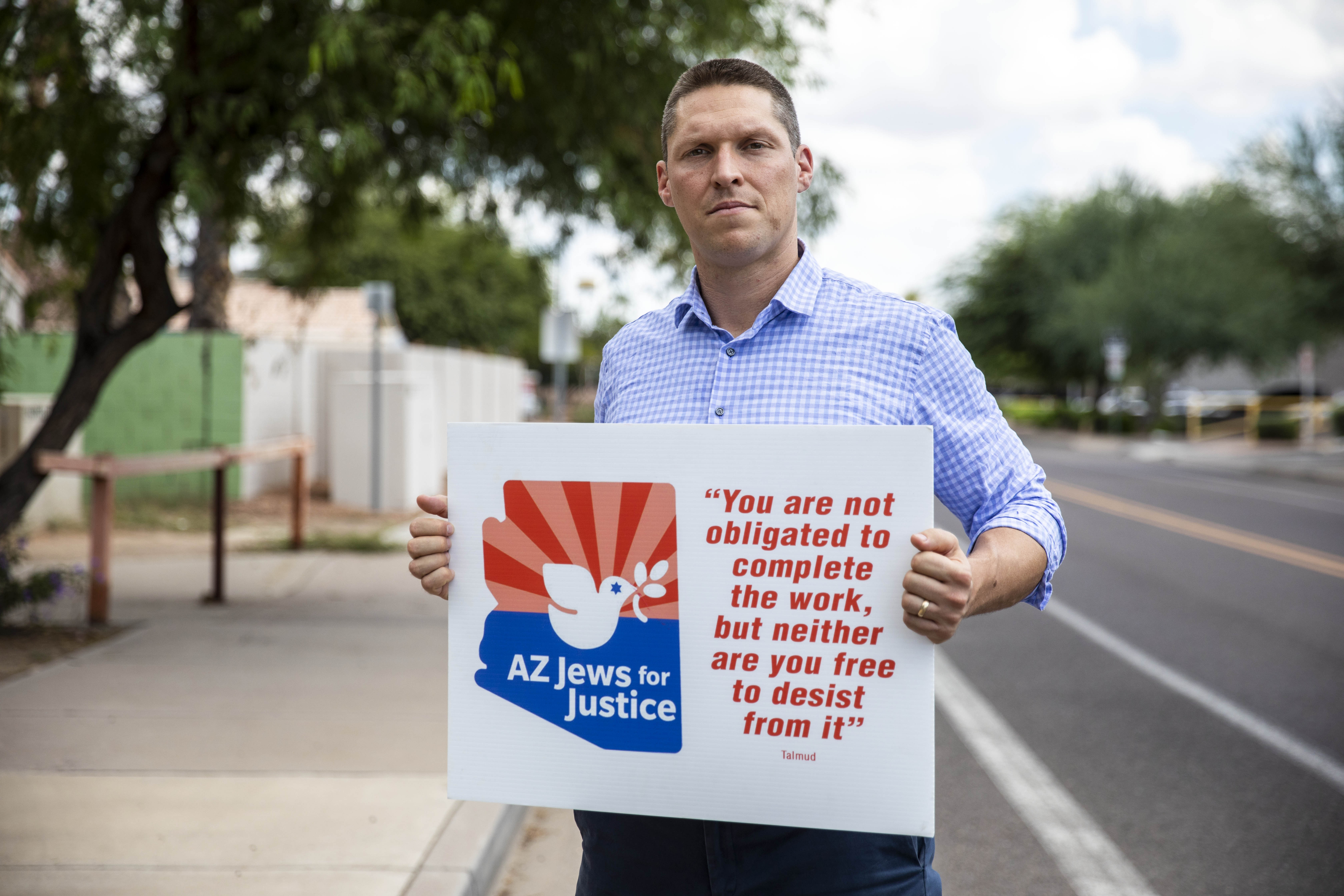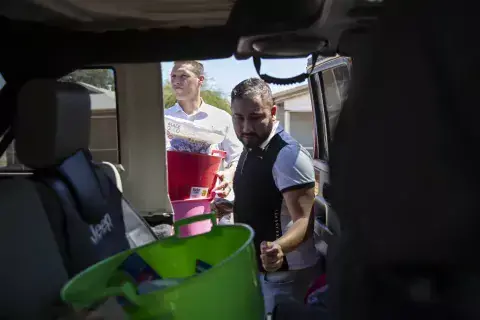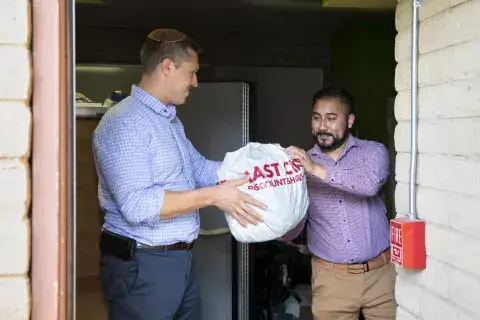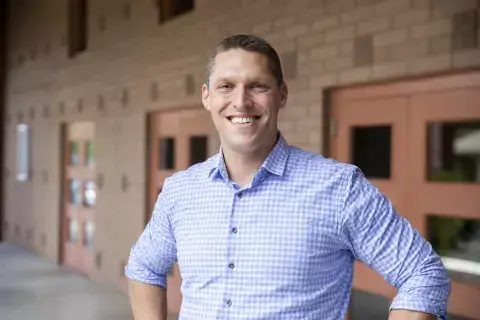
During the first three months of 2019, Rabbi Shmuly Yanklowitz’s grassroots organization Arizona Jews for Justice provided humanitarian relief to nearly 15,000 Central American refugees and migrants, most of them Christian, who entered the US near his home in Phoenix.
“Taking care of the foreigner, the stranger, the refugee is so clearly a priority in our holy text. It’s the Jewish history. We were wanderers and immigrants for 2,000 years, so this work really resonates with who we are,” Shmuly said.
Several hundred Jewish volunteers work with Christian groups and Hispanic churches to assist asylum seekers however they can, often at a moment’s notice.
“We sometimes need to run and jump. We’ll get a call that US Immigration and Customs Enforcement just dropped off 200 - 300 people in Phoenix with virtually nothing, so we’ll drive down to the bus station or over to the church where they are and respond immediately,” Shmuly said. “They need hygiene products, clothes, food, medicine, legal support, so we mobilise the Jewish community to respond. We’ve had people opening their homes to strangers so that asylum seekers have a place to stay. The Jewish community has really stepped up on this.”
Working with Jews and Christians comes naturally to Shmuly, who grew up in an interfaith household.

“My father is a Reform Jew, my mother is an evangelical Christian, and I was raised exposed to both faiths. My mother’s family would celebrate Christmas and Easter then we’d join my father’s family for Passover and Rosh Hashanah services. My parents were very supportive of me choosing my own path,” he said.
Shmuly solidified his commitment to Judaism at age 10, but his subsequent journey within the faith included Conservative, Orthodox, Ultra-Orthodox, Religious Zionist, and Progressive Orthodox Judaism. He now works primarily “in the pluralistic realm, operating with a lot of diversity rather than just working with those I agree with.”
Shmuly’s interreligious dialogue work began in earnest at rabbinical school in Israel and New York.
“It was less driven by theological intrigue and more about healing the world through social justice. I think I just came to an intellectual conclusion that God is much greater than any one articulation of faith and that there is wisdom in various approaches. Studying in Israel for two years and being so proximate to Muslim populations opened my eyes to two fervently passionate approaches and worldviews,” he said.
Shmuly has continued to engage with Muslims on a personal level -- inviting newly arrived Syrian refugees into his family’s home for Thanksgiving dinner -- and more formally with Arizona’s Jewish-Muslim dialogue group, which aims to deepen relationships between the two faith communities.
“I saw that young Jews were really hungry to engage with Muslims but didn’t have outlets for that, so we created this space. The goal has been relationship building, not sharing theology but getting to know each other as human beings,” Shmuly said.

The strength of these interreligious relationships became evident when tragedy struck both faith communities, first with the Pittsburgh synagogue shooting in October 2018 and then with the Christchurch mosque shootings in March 2019.
“Our communities really showed up for each other,” Shmuly said. “They invited me to speak to hundreds of people at a mosque, and we brought a Muslim partner to speak at our vigil. It’s powerful to see that the dialogue group has become about more than just relationship building. It’s turned into real solidarity where we stand together. With rising hate crimes against minorities in the US and with Jews and Muslims increasingly under attack, this is critical.”
Both Arizona Jews for Justice and the Jewish-Muslim dialogue group are coordinated by Valley Beit Midrash, a pluralistic adult learning and leadership centre that encourages cooperation and collaboration among Arizona’s diverse Jewish community. Shmuly serves as Valley Beit Midrash’s president and says the intellectual think tank’s community-building role is more important today than ever before.
“In-person intentional communities are breaking down around the world and being replaced by weaker bonds and virtual communities,” he said. “Religious and faith communities are some of the last really strongly bonded forms of community we see. It’s critical that we understand each other and mobilise the collective power of faith and religious communities to try to create positive change around the world together.”
Shmuly puts these words into practice when working with refugees.

“When I’ve sat in detention centres talking with asylum seekers, I’ve been amazed at how much they talk about their faith as the key ingredient to their resilience. I hear these horrible stories of how they were on their journey and were raped in Honduras or robbed in El Salvador or beaten in Guatemala and then somehow they got to the US border and were thrown into a detention centre. They made it through all that, the starving, the abuse, because they had faith that they were not alone,” he said.
“Not alone” in a religious sense, but also in terms of human connection and community, a gift Arizona Jews for Justice volunteers give as much as they receive.
“The Jewish volunteers who have participated thought they would just be helping, but they were transformed by the work as well. Some were scared to open their homes to host asylum-seeking families, but doing so opened their eyes to really wonderful people,” Shmuly said. “My hope for the Jewish community serving others is that they will incorporate this interfaith collaborative work as a central part of their identity.”
Shmuly hopes Arizona Jews for Justice helps refugees find stability in ways that bring dignity. Zooming out, he hopes to see a day when no one will suffer in isolation as he works to build “a spiritually rooted global consciousness of solidarity.”